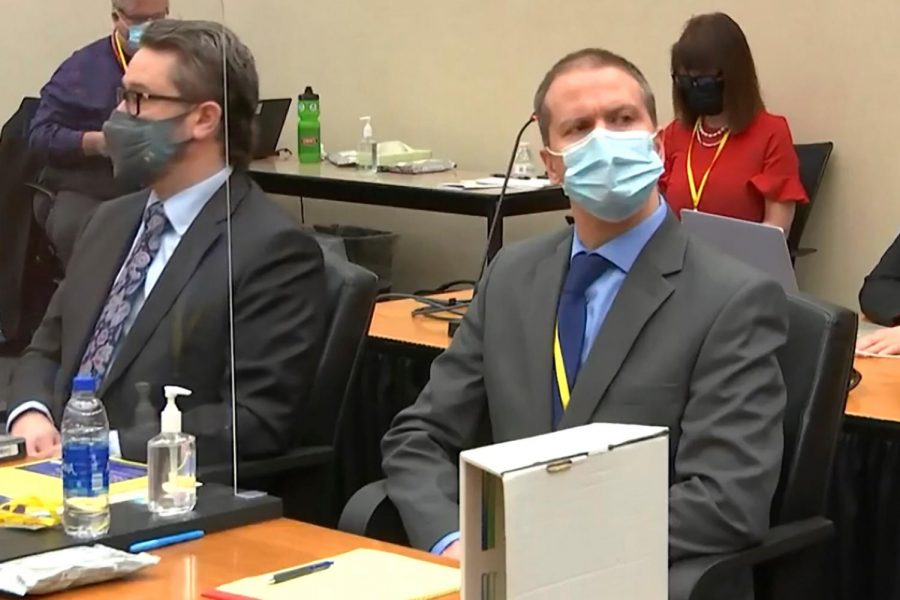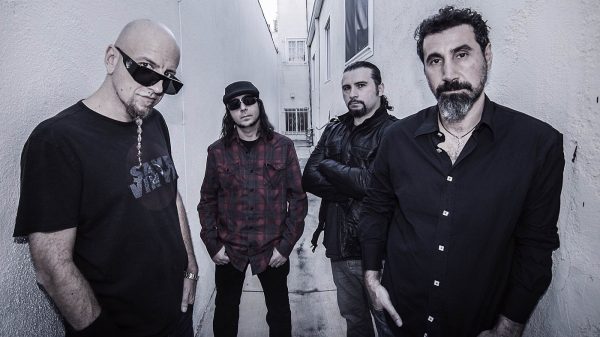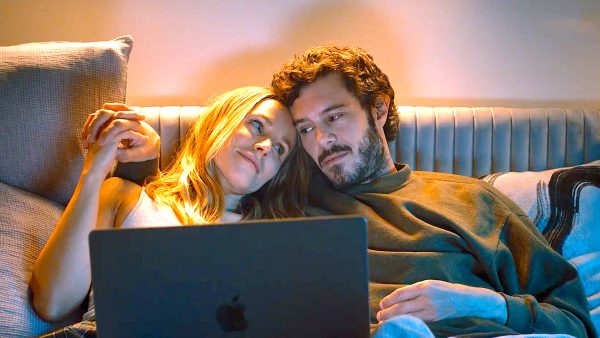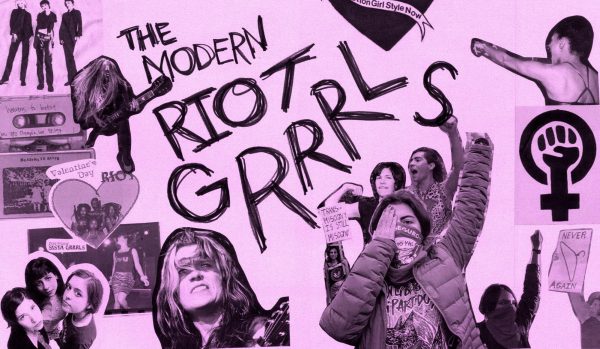Days 1-3 of Derek Chauvin’s trial take place
Photo Courtesy of the New York Times
Derek Chauvin at the George Floyd Murder Trial. It is expected the trial will last more than a month.
The trial for Derek Chauvin, the former Minneapolis police officer who is accused of killing George Floyd, began on March 29 with vivid pictures, opening statements and testimonies.
Chauvin is charged with second-degree unintentional murder, third-degree murder and second-degree manslaughter in the death of Floyd. It began with opening statements from Special Assistant Attorney General Jerry Blackwell and Chauvin’s defense attorney, Eric Nelson.
The main underlying theme for Blackwell’s statement is restraint and the lack thereof on May 25. Blackwell started off talking about the excessive use of force used on Floyd.
He also corrected the misconception that Floyd was held face down under Chauvin’s knee for eight minutes and 46 seconds. Blackwell said it was actually 43 seconds longer than that, coming to nine minutes and 29 seconds.
“Citizens who are under arrest should never be put in the prone position except only momentarily to get them under police custody or control,” he said.
Nelson began his opening statement stating, “The use of force is not attractive, but it is a necessary component of policing.”
He continued saying that Chauvin “did what he was trained to do,” and then warned the jury that this trial will bring several significant battles over how some facts are interpreted, which include Floyd’s cause of death.
“The evidence will show that Mr. Floyd died of a cardiac arrhythmia that occurred because of hypertension, his coronary disease, the ingestion of methamphetamine and fentanyl, and the adrenaline flowing through his body — all of which acted to further compromise an already compromised heart,” Nelson said.
If you deprive the body and brain of oxygen long enough, there’s going to be permanent damage and/or death.
Nelson described the medical findings and said that the reason the officers let Floyd die was because they were distracted by a chaotic crowd that “diverted their attention” from the man below the weight of their bodies.
He suggested that if the bystanders who were pleading with the officers to release Floyd had not been there, they would have acted differently.
So if the bystanders who were “pleading with the officers to release Floyd” weren’t there, he would have been released? Doesn’t the whole “peer pressure” idea we learn in school that if people are suggesting or even “pleading” you to do something, you do it?
Three witnesses testified during day one: Minneapolis 911 dispatcher Jena Scurry who directed police to Cup Foods after getting a call about a man with a counterfeit bill, Alisha Oyler, who recorded seven separate videos of the incident as she was working as a cashier across the street from where Floyd was killed, was next to take the stand.
The final witness of the day was Donald Williams, a martial arts trained fighter who was standing a few feet away as Chauvin forced his knee onto Floyd’s neck.
The day ended with a “major technical glitch” interrupted by the video feed being carried by news networks and watched by Floyd’s family members in a neighboring courtroom.
Day two included more testimonies from witnesses, some of which were younger than 18 last May. The witnesses’ testimonies were all consistent with each other, and each of them were emotional.
One witness, Darnella Frazier, who took a video of the arrest that helped ignite protests across the country, expressed regret for not physically confronting Mr. Chauvin, but said she ultimately believed the former officer was at fault for Mr. Floyd’s death.
“It’s been nights I stayed up apologizing and apologizing to George Floyd for not doing more and not physically interacting and not saving his life,” she said.
Nelson also had a testy exchange with a mixed martial arts fighter who was at the scene of the arrest and testified on days one and two. Prosecutors continued to focus on how long Mr. Chauvin kept his knee on Mr. Floyd, pinning him to the street.
Day two ended with Judge Peter Cahill delivering a warning about not arguing with court or counsel to witness Genevieve Hansen, the off-duty firefighter who called 911 to report Chauvin.
Day three consisted of additional emotional witness testimonies, which included a member of Floyd’s family.
It’s expected that Chauvin’s trial will continue for at least a month.
This trial has been long awaited, and I hope Floyd’s family can get some peace now that the trial has begun.








